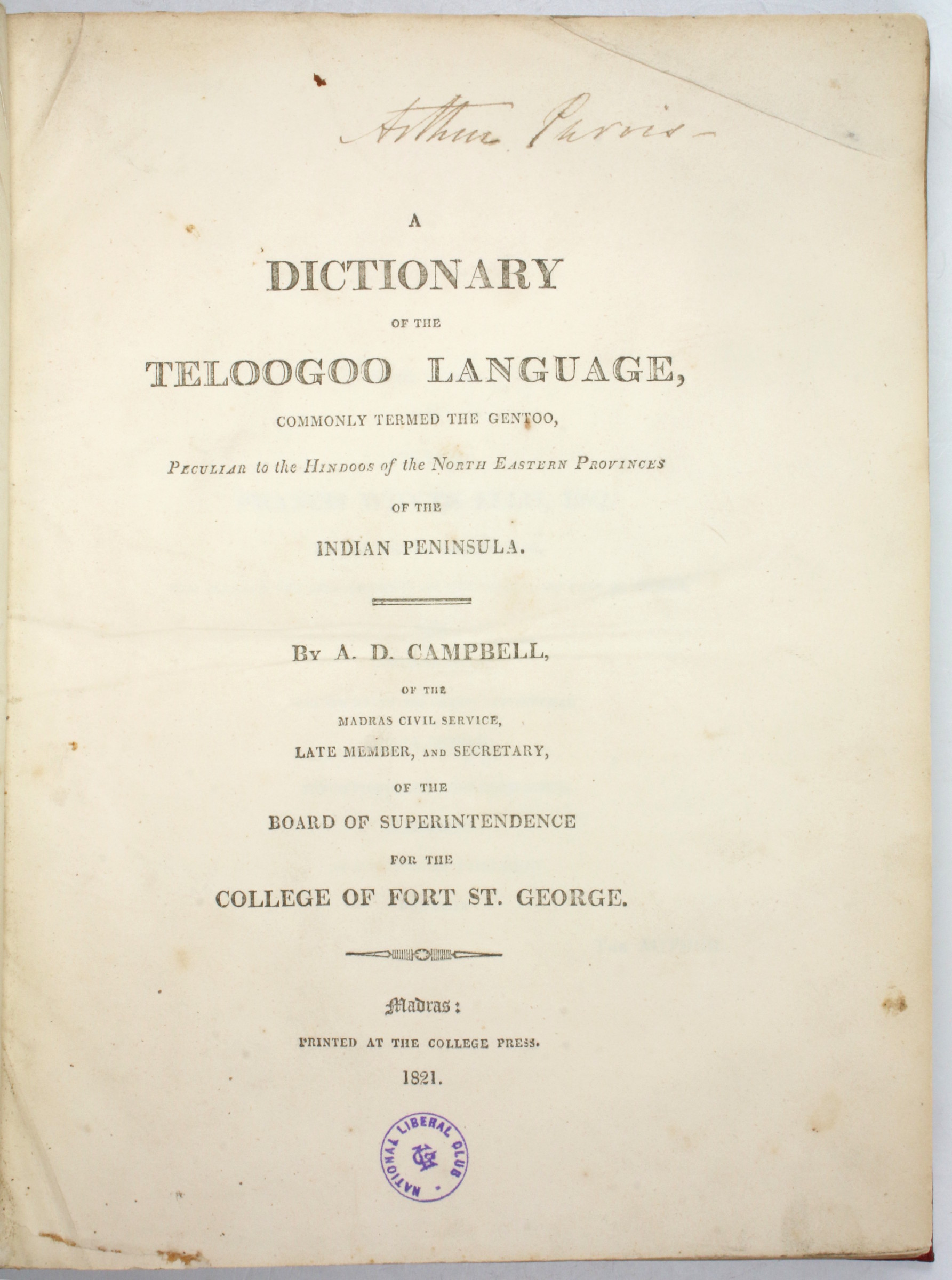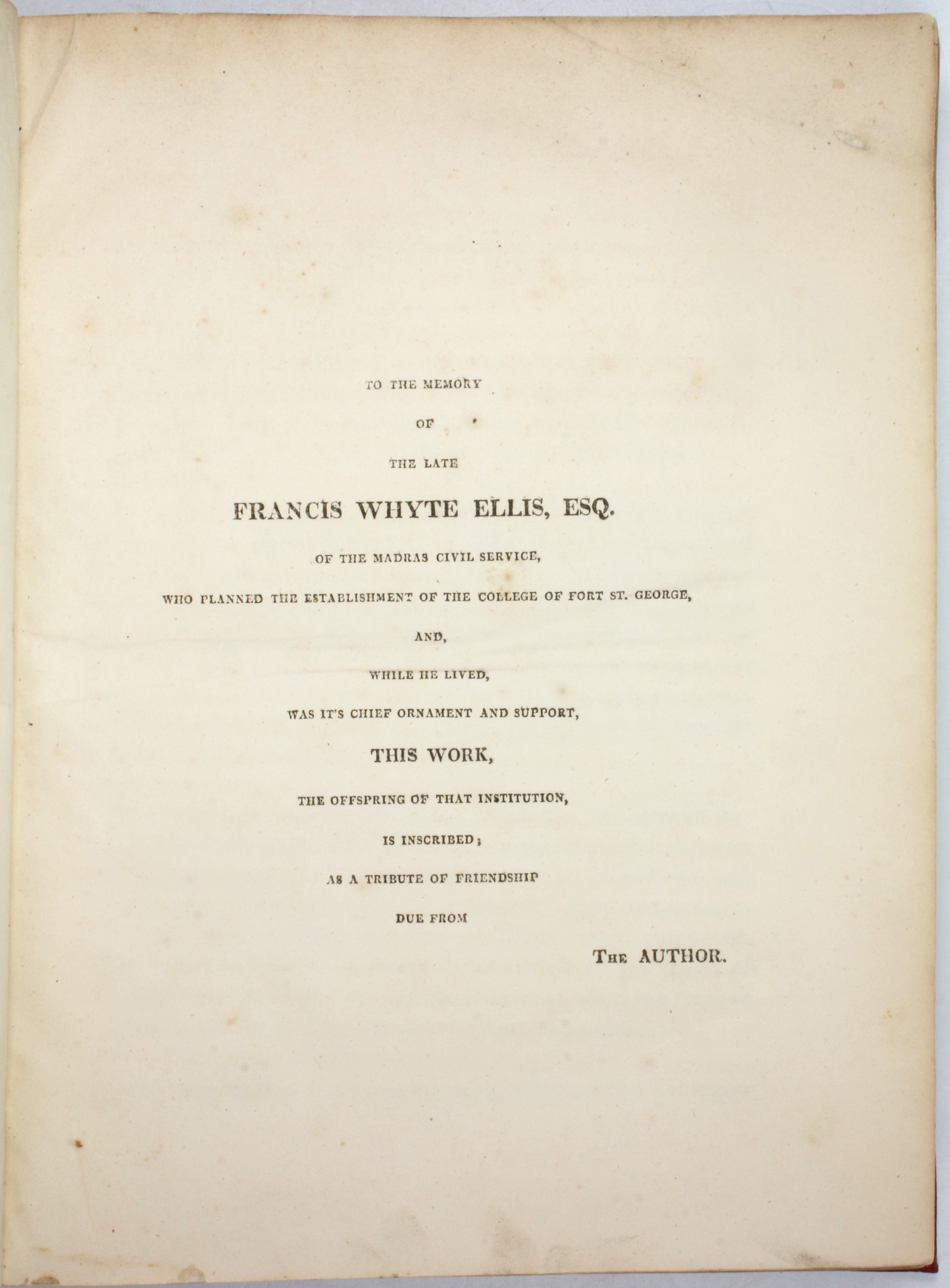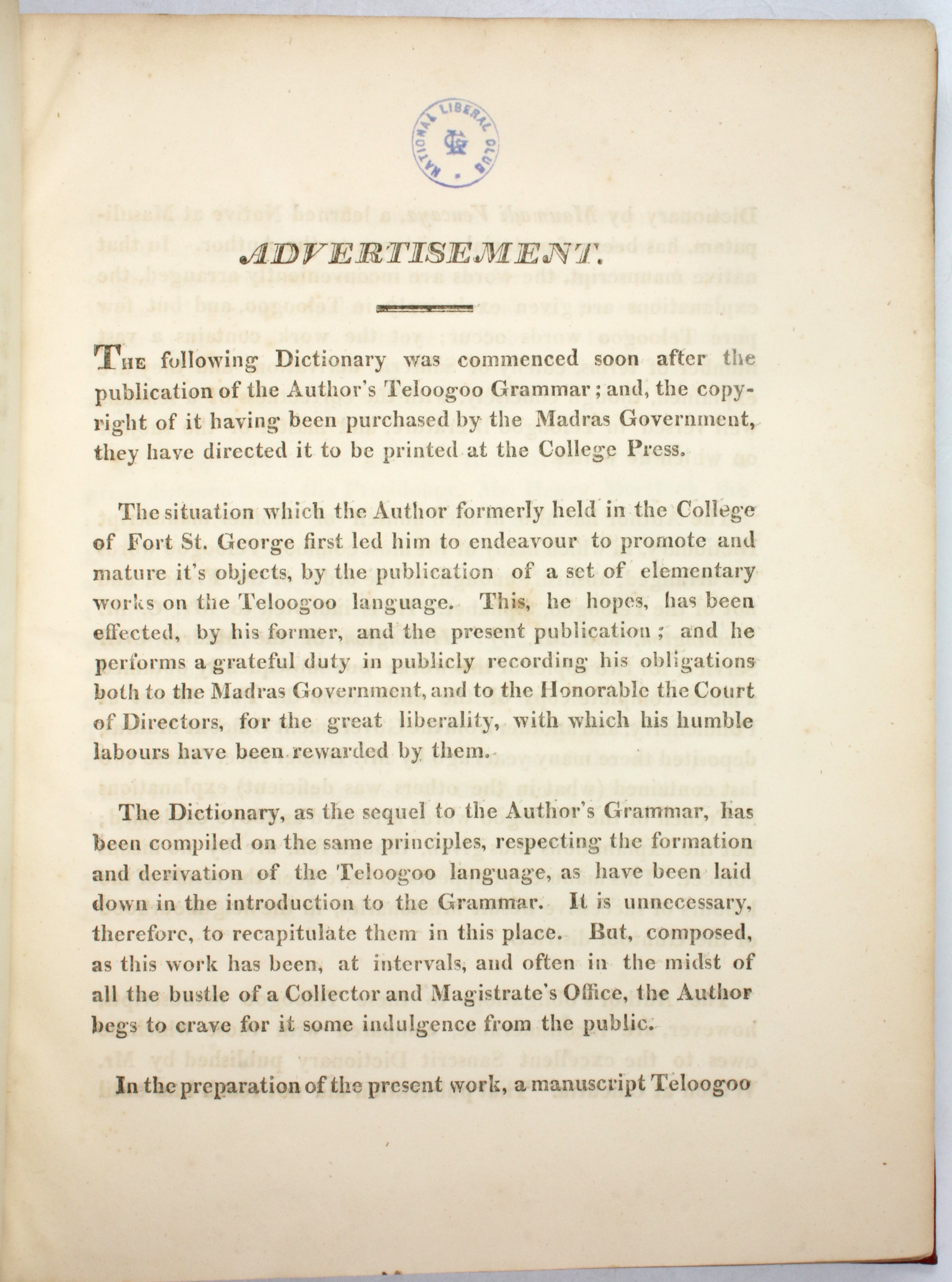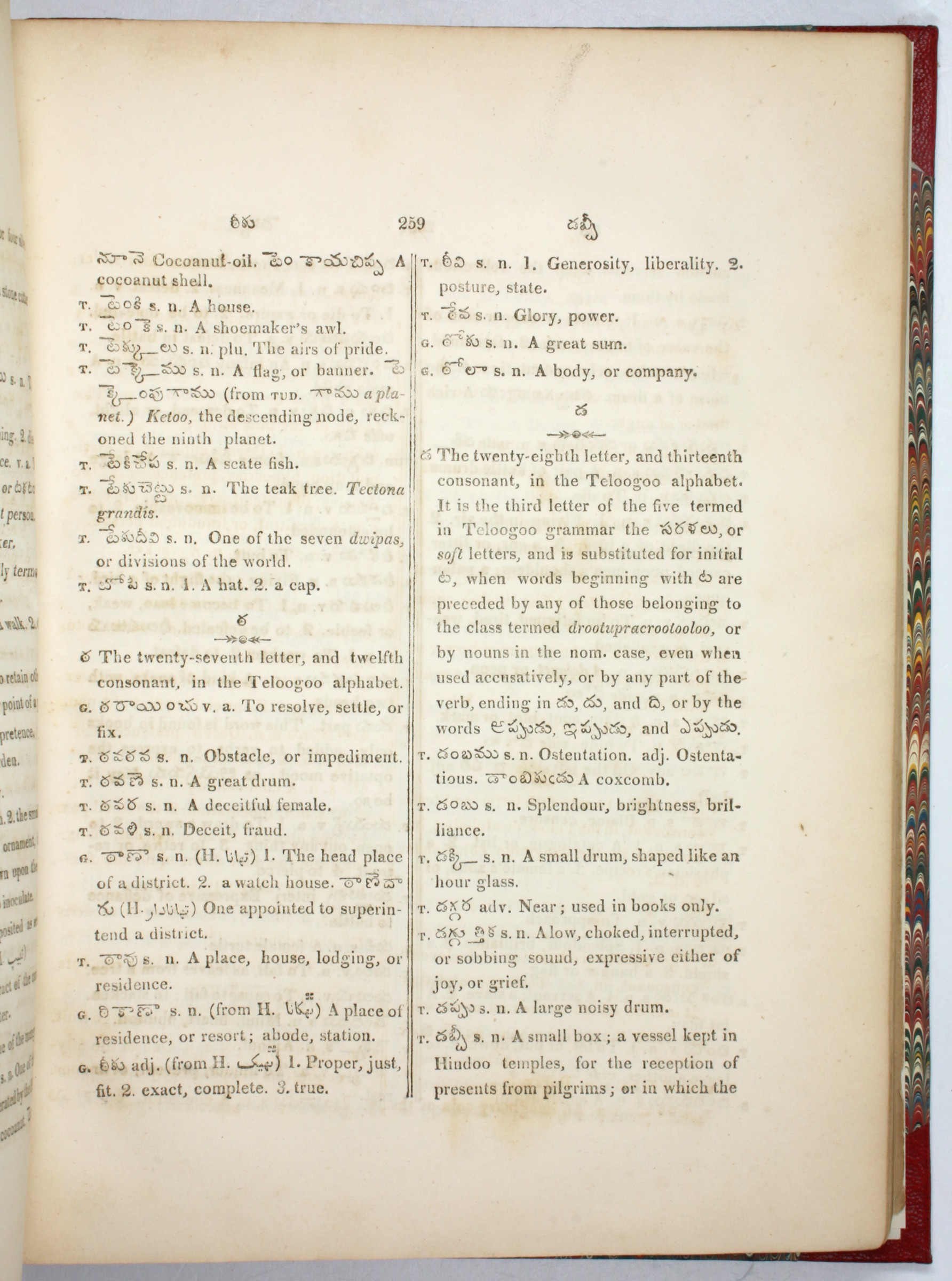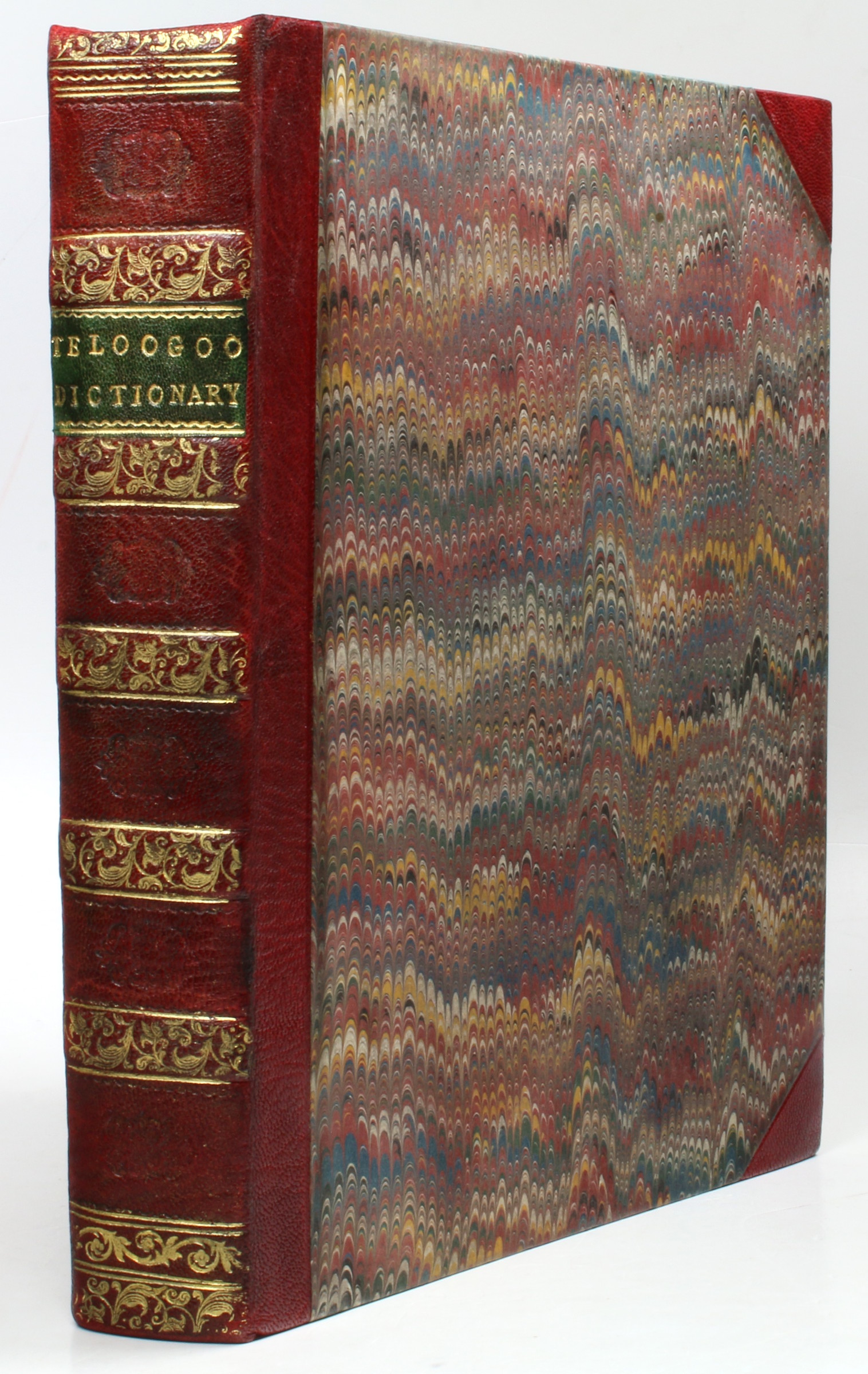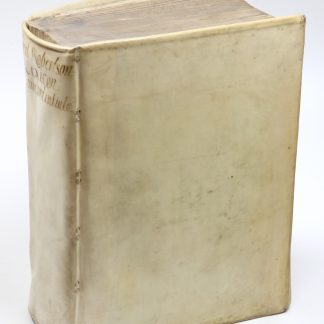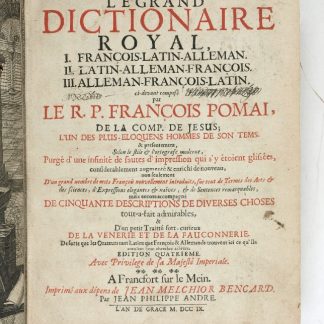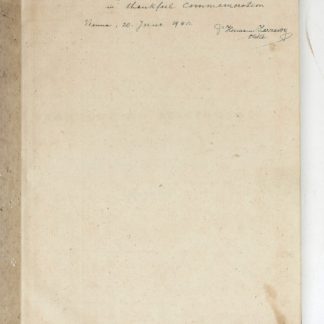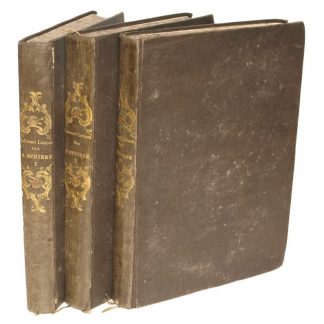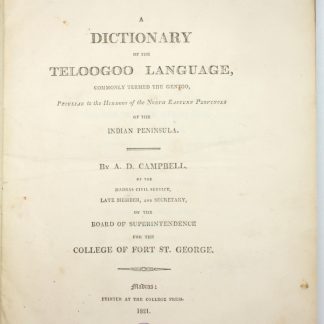A Dictionary of the Teloogoo Language, Commonly Termed the Gentoo, Peculiar to the Hindoos Inhabiting the North Eastern Provinces of the Indian Peninsula.
Large 4to (234 x 302 mm). (12), 601, (1), V, (1) pp. Recent red half morocco with green morocco label to spine, gilt, new endpapers.
€ 9,500.00
First edition of Campbell's dictionary of Telugu, the official language of the Indian states of Andhra Pradesh and Telangana. Spoken today by some 96 million people, Telugu is the most prominent member of the Dravidian language family, and one of the 22 scheduled languages of India. "Although it has been permeated by many Sanskrit words, Telugu belongs to a linguistic family wholly different from Sanskrit, being derived from its own roots, which, like those of its sister languages Tamil, Malayalam and Kannada, are unrelated to Sanskrit. In respect to its gentleness, its melodiousness and its elegance it stands in similar relations as does Italian to the other European languages" (cf. Vater/Jülg).
A. D. Campbell (1786-1857) was a Scottish civil servant for the East India Company, serving at Madras. He was later a member and secretary of the Board of Superintendence for the College of Fort St. George. This dictionary followed his "Teloogoo grammar" (1816) and, per the advertisement, was "compiled on the same principles, respecting the formation and derivation of the Teloogoo language".
The College of Fort St. George was founded in 1812 and its press enjoyed active patronage from the Madras government. It "represented a new institutional patron of Indian literature and played an important role in the publication of Tamil and Telugu classics. Described as a 'marshalling yard', the College brought together the British Orientalists, native scholars and civil servants in the study of the languages and literatures of south India. It appointed head masters to teach the indigenous languages to the junior civil servants. Apart from the instruction of languages of south India, the College also taught Hindu and Muhammadan law. The College is said to have spearheaded the revival of letters by actively promoting the learning and teaching of languages of south India and printing the grammatical and literary works" (Rajesh). Indeed, Campbell acknowledges the value and use of a manuscript Telugu dictionary by Maumadi Vancaya who lived at Masulipata. Both the grammar and the dictionary were intended for the use of young Indian Civil Service recruits.
Scarce: OCLC locates two copies in Denmark, two in Berlin, and others at the British Library, NLS, St Andrews, BnF, Indiana University, and SLVIC. Only two copies listed at auction in 1972 and 2013.
1) Ca. 1830s handwritten ownership inscription of Arthur Purvis, a British civil servant in the East India Company, to title-page. 2) Discreet 1890s library stamps of the National Liberal Club, London.
With the rare half-title. Some occasional toning, very good.
Zaunmüller 377. Vater/Jülg 396. V. Rajesh, "Patrons and Networks of Patronage in the Publication of Tamil Classics, c. 1800-1920", in Social Scientist 39.3/4 (March-April 2011), p. 67.

